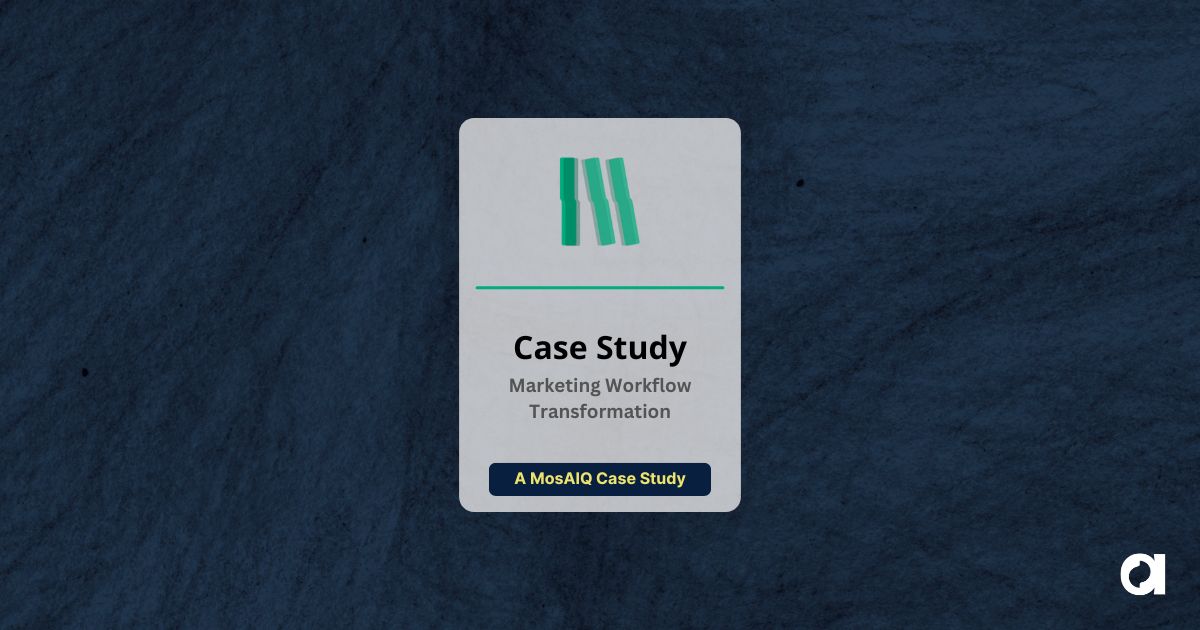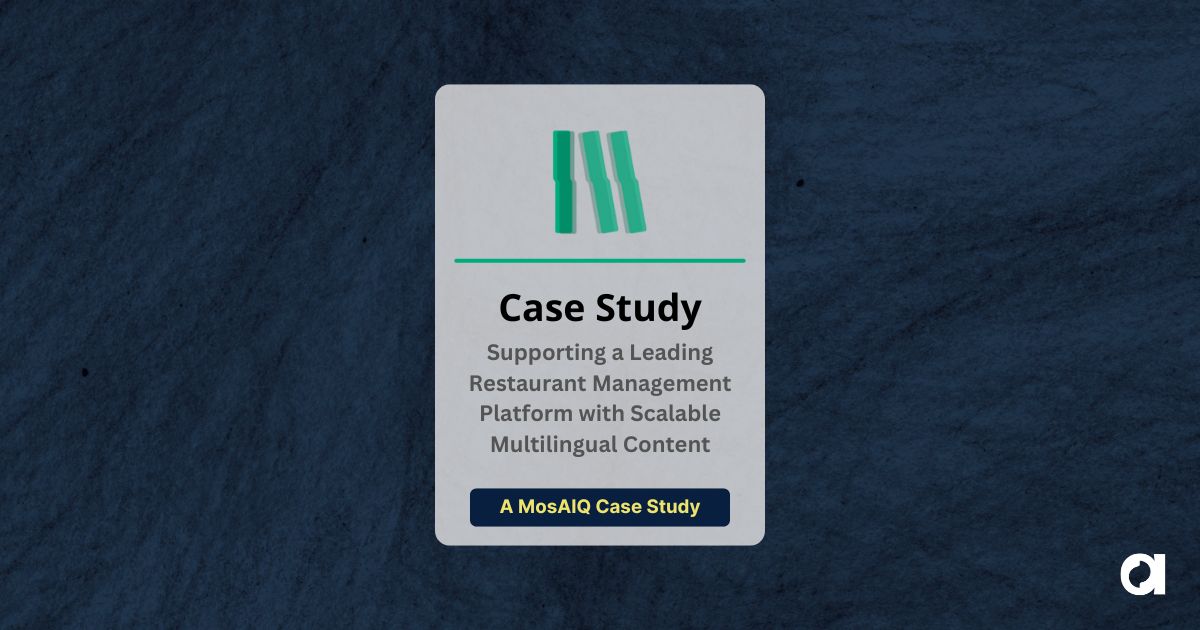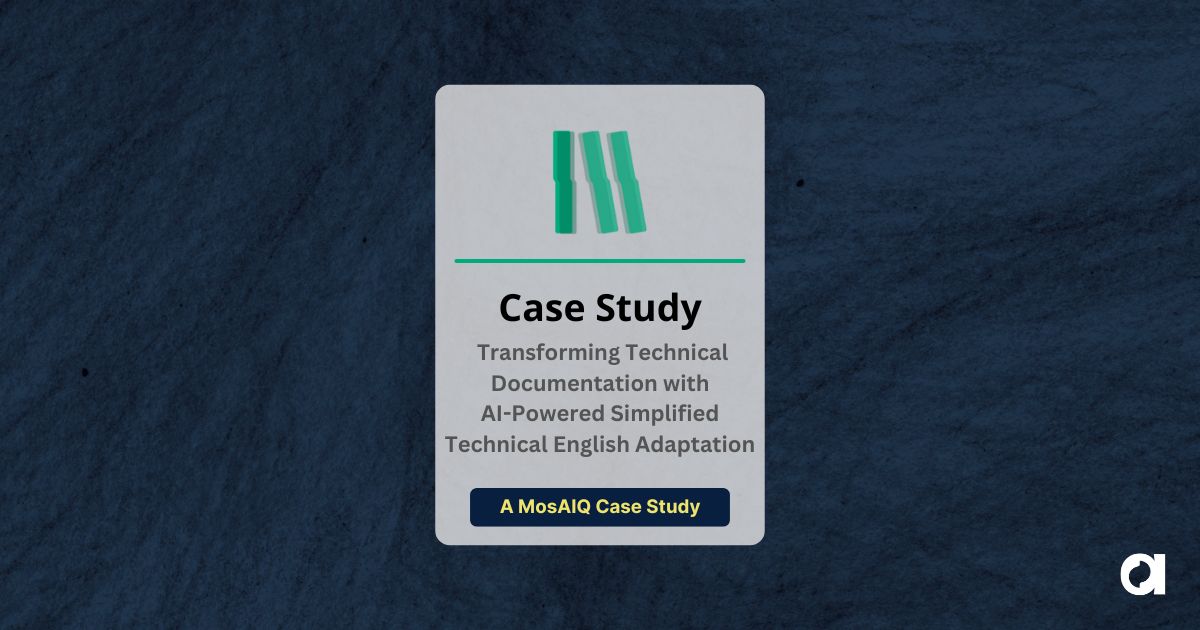Every successful project starts with a solid beginning. In localization, it’s all about getting things right from the start—what we call Quality at Source. Instead of reactively fixing problems as they emerge, this approach proactively ensures that content is clear, consistent, and ready for translation.
At Argos Multilingual, we’ve always embraced this idea, and with the support of AI, we’re making our processes even faster and more precise. By using advanced AI prompting to review and optimize source content, we’re improving speed, accuracy, and attention to detail, from identifying key terms and formatting to enhancing readability.
Now that we’ve set the stage, let’s take a closer look at how quality makes all the difference in the localization process—and why it’s more important than ever.
How Quality at Source Shapes Successful Localization
Quality at Source is a strategy that prioritizes reviewing and refining content from the earliest stages of creation. By addressing potential issues such as unclear wording, inconsistencies, or formatting challenges prior to starting translation, the process becomes smoother and more efficient for everyone involved. This proactive approach minimizes errors and reduces the need for costly revisions later.
By focusing on quality early, Argos ensures that translation projects run more smoothly, with fewer queries and faster delivery times. This method saves both time and costs, while ensuring more accurate results. Over the years, Quality at Source has become a core part of Argos’ success, helping our clients avoid delays and achieve higher quality outcomes.
And today our AI solutions are making Quality at Source even more effective.

Smarter Foundations: How AI Elevates Quality at Source
Quality at Source has been fundamental to the way we approach localization, helping teams catch issues like unclear wording and inconsistencies before problems emerge. But with the introduction of AI, this well-established strategy is gaining new momentum.
Argos’ custom AI solutions now allow teams to analyze large documents faster and more accurately. By identifying key elements like acronyms, abbreviations, and formatting, our AI solutions streamline the preparation process, helping to ensure that content is ready for translation right from the start.
AI also improves the process by extracting critical details such as external links, ISO standards, and document types. These details, captured more efficiently than ever, create clearer instructions for translators, reducing the number of queries and helping projects stay on track.
Clearer Communication: Optimizing Source Content for Success
AI is also enhancing how Argos approaches the optimization of source content before translation. By focusing on clarity and readability, AI tools simplify complex text, making it more accessible for global audiences. This not only helps ensure that the message is conveyed accurately but also refines overall understanding.
Our clients are increasingly aware of the importance of optimizing source content, not just for internal use, but for the global markets they serve. In response, we collaborate closely with them to tailor source optimization services that meet their specific needs. Whether it’s adhering to industry standards, maintaining word limits, or reducing ambiguity, our efforts ensure that content is both ready for translation and well-suited for a global audience.
While AI plays a critical role in streamlining these processes, human expertise is essential in refining AI’s output. Our professionals ensure that content meets industry-specific guidelines and client expectations, especially in regulated or highly technical fields.

“It’s great to see clients focusing on source optimization and considering how readable and consumable their documents are. This reflects a proactive approach to improving quality and a willingness to reach out to their language partner for assistance.”
— Karl Pfeiffer, Senior Quality Lead at Argos Multilingual
Speed, Savings, and Satisfaction: How Quality at Source Pays Off
At Argos Multilingual, we know that starting with Quality at Source leads to better outcomes across the board.
Fewer revisions: By addressing potential issues like inconsistent terminology or formatting before translation begins, we reduce the need for multiple rounds of edits. AI enhances this process by catching errors early, helping translators and project teams work more efficiently with fewer disruptions.
Cost and time savings: Resolving errors and optimizing content not only reduces costs but also speeds up the entire project timeline. With AI accelerating source review, we can prepare content faster and more thoroughly, ensuring that products reach global markets on schedule and keep our clients competitive.
Improved translator efficiency: AI-assisted source review helps our linguists by clarifying issues such as unclear acronyms or non-translatable terms ahead of time. This allows them to focus on delivering high-quality translations without being bogged down by queries. Our clients also benefit from fewer back-and-forth questions, resulting in a more streamlined process.
Client satisfaction: A smoother, more efficient localization process results in better project outcomes. With fewer revisions and faster delivery times, we consistently meet client expectations, strengthening relationships and ensuring long-term success.

AI’s Evolving Role in Quality and What’s Next
As we continue to refine our processes at Argos Multilingual, AI remains an integral part of our approach to improving Quality at Source. While we’ve already seen substantial benefits, we’re constantly piloting and testing new AI tools to push the boundaries of what’s possible in localization. Each new development helps us refine the accuracy and efficiency of source review and content preparation.
AI-Assisted Glossary and TM Cleanup
In addition to source review, AI plays an important role in other areas that impact quality such as glossary and translation memory (TM) cleanup. Our AI-driven solutions already assist in maintaining accurate and consistent terminology across projects, simplifying the process for both translators and clients. By identifying and addressing term inconsistencies, AI helps us ensure that content remains clear, which contributes to better overall results.
It All Starts with Quality at Source
At Argos, we’ve seen how Quality at Source changes the localization process for the better. By getting things right from the beginning—whether that’s simplifying complex content or improving clarity—we save time, lower costs, and help projects stay on track.
Our AI tools work alongside experienced linguists to refine content, making it ready for global audiences while maintaining the high quality that our clients expect. The result is a more efficient localization process that delivers accurate, culturally aligned content every time.
If you’re ready to take a more strategic, quality-driven approach to localization, reach out to us today. Together, we can start strong and ensure successful outcomes for your global projects.
 Argos Multilingual
7 min. read
Argos Multilingual
7 min. read
Language acts as a mirror, reflecting the culture, history, and identity of its speakers, but that doesn’t always mean things are clear. Regional language variations provide subtle but significant shifts in how languages are used in different countries, affecting meaning and reception. But these little differences—whether in vocabulary, grammar, or pronunciation—mean we don’t always see […]

 Argos Multilingual
8 min. read
Argos Multilingual
8 min. read
As a procurement professional, you’re faced with an endless array of services to evaluate, compare, and purchase. It’s clear why something like translation and localization services, which can seem esoteric, presents a unique challenge. After all, it’s not just about finding the lowest price per word—it’s also about securing services that ensure the right performance […]











